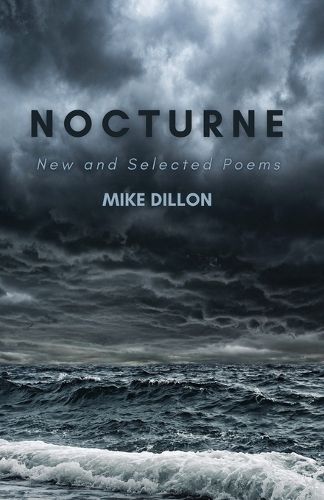Readings Newsletter
Become a Readings Member to make your shopping experience even easier.
Sign in or sign up for free!
You’re not far away from qualifying for FREE standard shipping within Australia
You’ve qualified for FREE standard shipping within Australia
The cart is loading…






This title is printed to order. This book may have been self-published. If so, we cannot guarantee the quality of the content. In the main most books will have gone through the editing process however some may not. We therefore suggest that you be aware of this before ordering this book. If in doubt check either the author or publisher’s details as we are unable to accept any returns unless they are faulty. Please contact us if you have any questions.
Mike Dillon's Nocturne: New & Selected Poems, features his best work from six books of poetry, two poetry chapbooks, and three books of haiku. In That Which We Have Named he writes: eyes that long for the windless/light of Heaven must, in the end/show proof of earth. This quest for ultimate things grounded in daily life is the common thread running through all of Dillon's books. Along the way, the poet's eye swerves to the margins, away from the crowd, to find a patch of sunlit moss, or a fleeting moment of silence. A tender regard for the marginalized is captured in this much-celebrated haiku: the last kid picked/running his fastest/to right field. Dillon grew up on Bainbridge Island, west of Seattle. His Departures: Poetry and Prose on the Removal of Bainbridge Island's Japanese Americans After Pearl Harbor, evokes the tragedy and heroism of that time, delivered with the terse evocation, sharp detailing, and devastating humanity of a Netsuke carving. It was written during the rise of Trumpism. Across Agate Pass from Bainbridge Island lies the Suquamish reservation, burial place of Chief Seattle. For a middle-class white boy, Suquamish was a source of mystery and wonder, opening a door to another dimension: A white marble cross, flanked by two cedar poles, /marks the great chief's grave, /his feet aimed east, he writes in Suquamish and Other Poems. Mike Dillon's poetic quest searches for the crossroads of time and eternity, where the world appears as glimmering immanence.
$9.00 standard shipping within Australia
FREE standard shipping within Australia for orders over $100.00
Express & International shipping calculated at checkout
This title is printed to order. This book may have been self-published. If so, we cannot guarantee the quality of the content. In the main most books will have gone through the editing process however some may not. We therefore suggest that you be aware of this before ordering this book. If in doubt check either the author or publisher’s details as we are unable to accept any returns unless they are faulty. Please contact us if you have any questions.
Mike Dillon's Nocturne: New & Selected Poems, features his best work from six books of poetry, two poetry chapbooks, and three books of haiku. In That Which We Have Named he writes: eyes that long for the windless/light of Heaven must, in the end/show proof of earth. This quest for ultimate things grounded in daily life is the common thread running through all of Dillon's books. Along the way, the poet's eye swerves to the margins, away from the crowd, to find a patch of sunlit moss, or a fleeting moment of silence. A tender regard for the marginalized is captured in this much-celebrated haiku: the last kid picked/running his fastest/to right field. Dillon grew up on Bainbridge Island, west of Seattle. His Departures: Poetry and Prose on the Removal of Bainbridge Island's Japanese Americans After Pearl Harbor, evokes the tragedy and heroism of that time, delivered with the terse evocation, sharp detailing, and devastating humanity of a Netsuke carving. It was written during the rise of Trumpism. Across Agate Pass from Bainbridge Island lies the Suquamish reservation, burial place of Chief Seattle. For a middle-class white boy, Suquamish was a source of mystery and wonder, opening a door to another dimension: A white marble cross, flanked by two cedar poles, /marks the great chief's grave, /his feet aimed east, he writes in Suquamish and Other Poems. Mike Dillon's poetic quest searches for the crossroads of time and eternity, where the world appears as glimmering immanence.